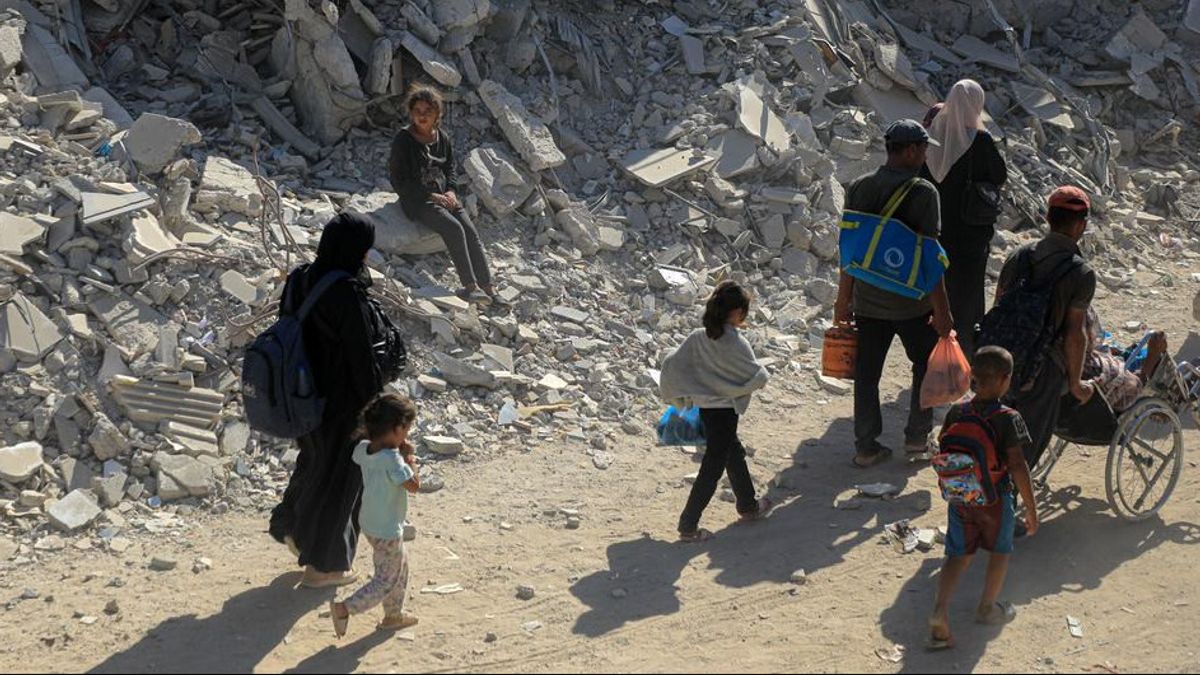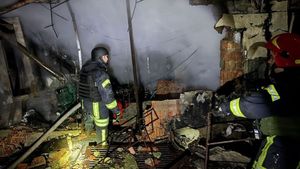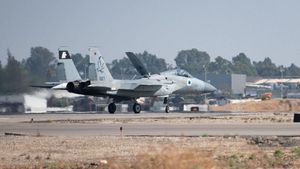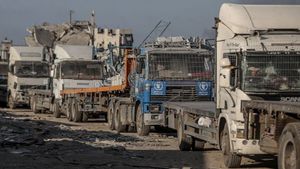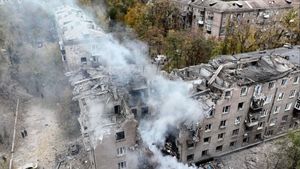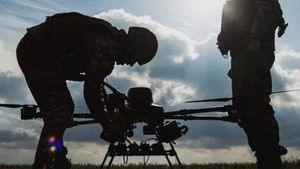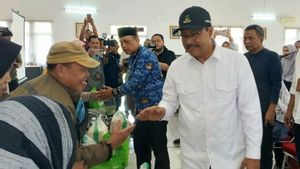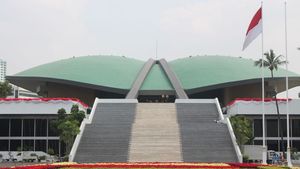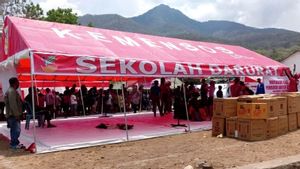Moein Abu Odeh climbs piles of debris in southern Gaza, looking for clothes, shoes, anything he can sell for cash due to crisis conditions since Israel began the relentless bombing.
The father of four dug under a beam and cleaned up a pile of concrete dust at the site of the destroyed airstrike in the town of Khan Younis. He plans to sell what is found to buy flour.
"If there is food and drink, believe me, (this use) I will donate it to charity," he said.
"But the struggle we went through (meaning we) had to sell our clothes to eat and drink," he continued.
The widespread shortage of foodstuffs and the months-long war prompted trade in used clothing, most of which were rescued from the homes of people killed in the conflict.
In one of the emergency markets, shoes, shirts, sweaters, and sneakers were stretched over a dusty blanket.
A girl tries out-of-the-art boots, which could be useful this winter if she was able to buy them in the midst of Gaza's shattered economy.
A trader gets the advantage over his competitors by shouting that his merchandise is European goods.
A man laughed when he invited a boy to try a green jacket.
"We got clothes from a man whose house was destroyed. He was digging concrete to get some (wear) and we bought it like this and sold it at a good price," said Louay Abdel-Rahman, an displaced Palestinian.
He and his family arrived in the city from another part of Gaza only in the clothes they wore. So he also kept it for them.
"Musim has gone from summer to winter and we need clothes," he said.
SEE ALSO:
Israeli military operations since the Hamas attack on October 7, 2023, destroyed the area, causing about 42 million tons of debris to pile up in places where houses, mosques, schools, and shops used to stand.
In April, the United Nations estimated it would take 14 years to dispose of the debris. UN officials overseeing the matter said the cleaning would cost at least 1.2 billion US dollars.
More than 128,000 buildings were destroyed or badly damaged or moderately in Gaza due to the conflict, the United Nations said. Below all, there were clothes stitches that were destroyed.
"All of our children are only wearing short sleeves and no one helps them," said Saeed Doula, father of seven.
"This war covers everything," he said.
The English, Chinese, Japanese, Arabic, and French versions are automatically generated by the AI. So there may still be inaccuracies in translating, please always see Indonesian as our main language. (system supported by DigitalSiber.id)
